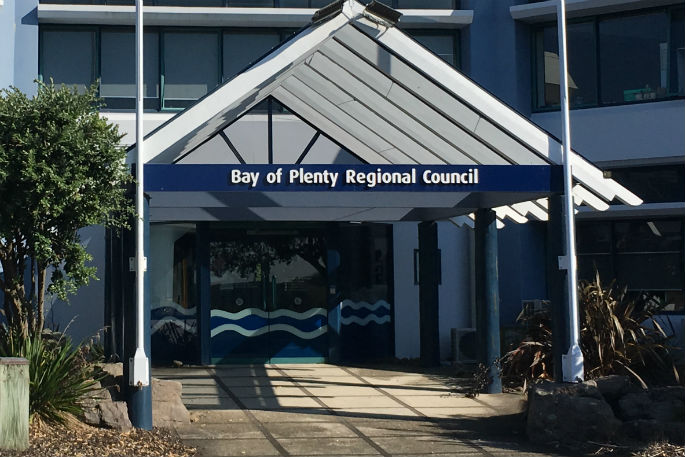Bay of Plenty Regional Council has described the closing of its 2015-2025 Long Term Plan as revealing a positive annual report.
The 2017/18 Annual Report sets out how the Regional Council performed against its planned activities, for year three of its 2015-2025 Long Term Plan.
It was adopted by council last week and received an unmodified audit opinion by Audit New Zealand.
Council says it highlights the work it has achieved between July 1 2017 and June 30 2018.
Regional Council chair Doug Leeder says he's proud of these achievements, despite working in an environment which continued to change and required a level of agility and responsiveness from staff.
'We managed to achieve a lot despite some of the challenges we were dealing with – including the work on our river schemes following the April 2017 flooding.
'Repair works have been progressing on programme schedule and 119, or 23 percent of the highest priority work sites have been completed to date.
'A substantial part of the Edgecumbe College Road Stopbank Realignment Project has also been delivered along with Stage 4 of the Rangitāiki Floodway Project. ”
He says council also managed to maintain a strong focus on water management, with progress made implementing the Government's National Policy Statement for Freshwater Management.
This included finalising values and objectives for Kaituna and Rangitāiki Water Management Areas (Plan Change 12) while continuing modelling work.
'Improving water quality in Rotorua's lakes continued to be a significant part of our work during the year,” he says. 'The Lake Rotorua Incentives Scheme progressed, with six incentive agreements put in place that, when fully implemented, will see an 11.5 tonnes reduction of nitrogen entering Lake Rotorua.”
In addition the Tauranga Harbour Catchment saw strong progress throughout the year, with 340 tonnes of sea lettuce and 1,000 kg of rubbish removed from foreshores, streams and estuaries, progress was made supporting the Kaituna River Re-diversion and Ongatoro/Maketū Estuary Enhancement Project and more than 100 people, including representatives from six Te Arawa iwi gathered at Tukotahi Marae to celebrate the start of construction work on 12 June 2018.
'In conjunction, the Papahikahawai Island Biodiversity Management Plan is on track with 90% of all plants now in, as a result of 20,000 new plants put in during the winter of 2018.”
He says the council was pleased to be progressing on some of the financial goals it had set for itself.
'We delivered our work programme through operating expenditure of $118.3 million compared to a budget of $124.7 million. We also delivered a significant increase in our capital works programme with capital expenditure of $36.5 million, compared to a budget of $43.4 million.”
Doug says the Regional Council was now focussed on delivering on its Long Term Plan 2018-2028, which has set the Council's direction and plan for the next three years.
'This includes how the Regional Council will deliver on four outcomes for the community: a Healthy Environment, Freshwater for Life, Safe and Resilient Communities and A Vibrant Region.”
People can read about these plans on the BOPRC website.
The full Annual Report and Summary are also available online.
Other highlights
Bus services continued for Tauranga, Rotorua and rural areas with more than 2.9 million passengers boarding the services throughout the year, according to figures released by Bay of Plenty Regional Council.
'The Western Bay of Plenty Public Transport Blueprint was completed and approved during the year and the bus services tender for the Western Bay of Plenty Blueprint was completed as well.
'The Transport Planning Activity completed a review of the Regional Land Transport Plan and submitted this to the New Zealand Transport Agency.
'Throughout the year we developed and consulted with our community on our Long Term Plan 2018-2028 consultation document. This gave us the opportunity to engage with a wide range of stakeholders including the general public, iwi, local authorities, community boards, and business and helped inform how we will deliver our activities for our community over the next 10 years.
'We continue to support the capacity of Māori to participate in council decision making processes including through council's Komiti Māori and support for iwi members on Treaty of Waitangi co-governance forums.”



0 comments
Leave a Comment
You must be logged in to make a comment.